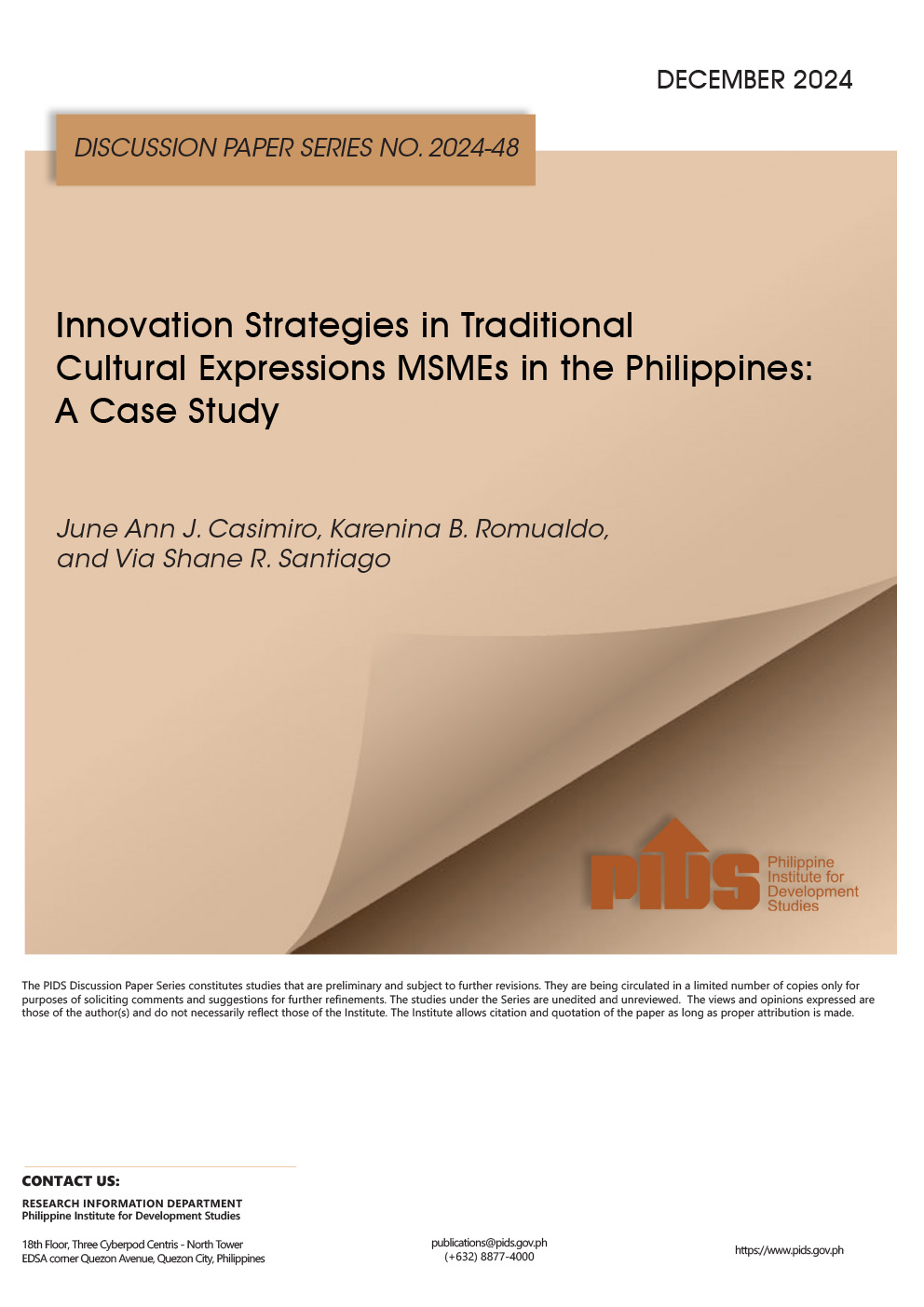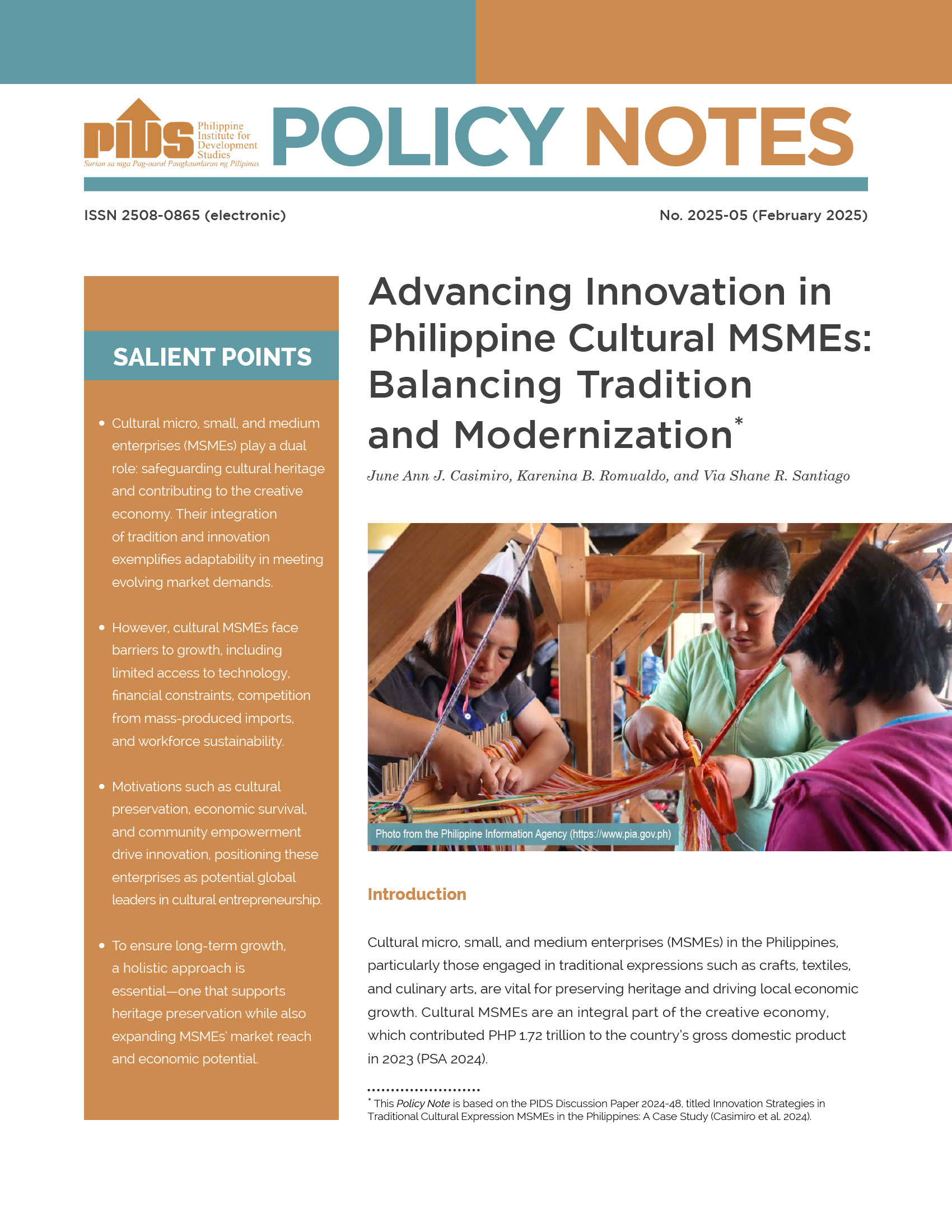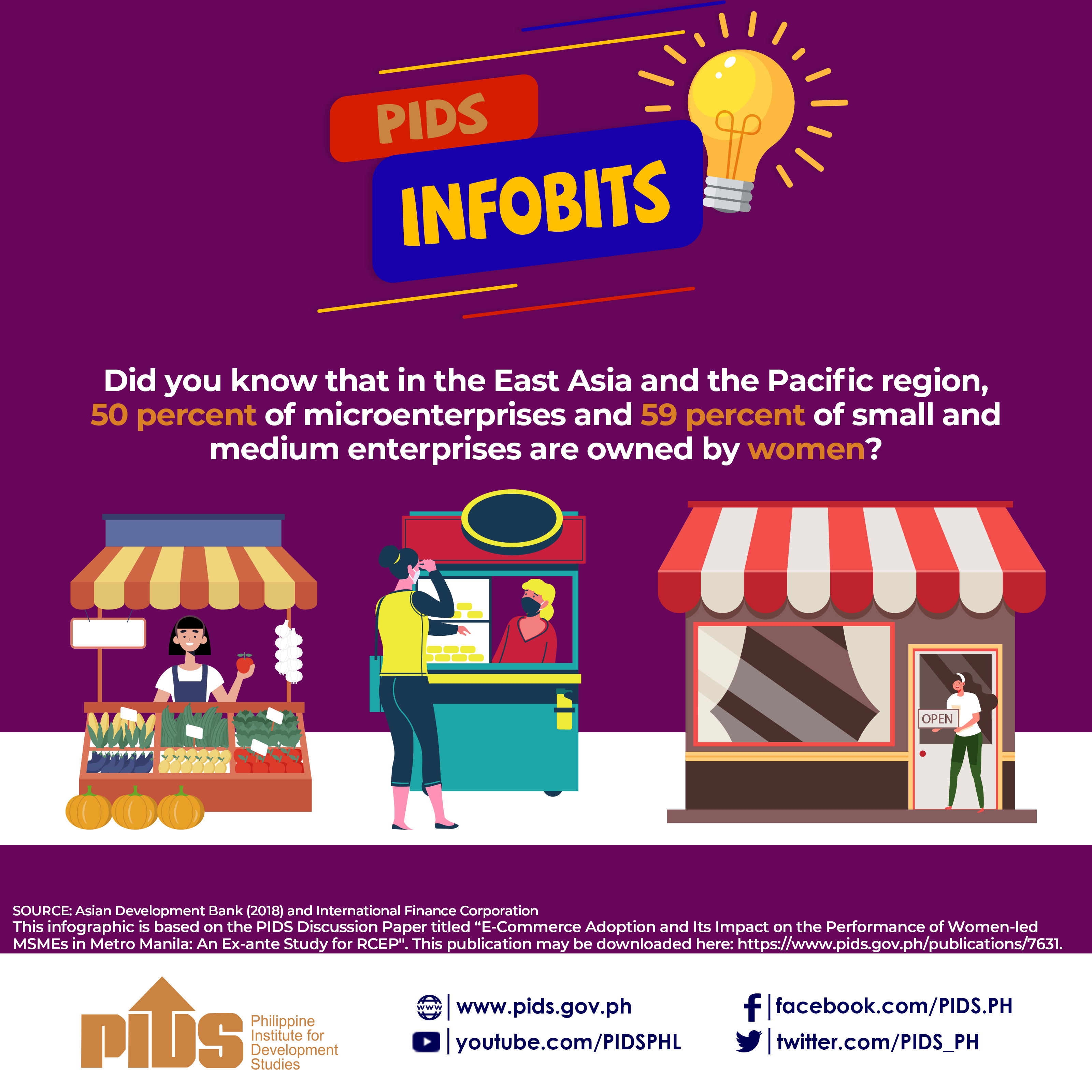Small and medium enterprises (SMEs) need to find new market niches and consider indirect exporting to enable them participate in the global value chains (GVCs), according to a study by the Philippine Institute for Development Studies (PIDS).
A discussion paper titled “Obstacles and Enablers of Internationalization of Philippine SMEs Through Participation in Global Value Chains” tackled some policy implications that can help overcome the identified challenges of SMEs in connecting to GVCs.
It found that Philippine SMEs are weakly linked to GVCs due to competition in ASEAN and East Asia; international standards, regulatory requirements, and local institutions; international market demand and inputs supply; and entrepreneurial mindset and skills.
It uses data from a survey of Metro Manila SMEs and a set of key informant interviews of SME owners and of government officials tasked to assist SMEs.
To address these challenges, the study urged SMEs to find new market niches where competition is not yet too tough.
“Philippine SMEs cannot do anything about the lower cost of labor in competitor countries, neither on the bigger support of the government on SMEs in these countries. What domestic SMEs can do is to target the right market where they can establish early mover advantages,” it noted.
The study pointed out that many potential exporters do not have the capacity to produce in sufficient quantities that would make exporting profitable.
Many potential exporters likewise do not have access to market information in export destination countries, it said.
“Indirect exporting can help address these obstacles in connecting to global value chains. Indirect exporting may be done through consolidators –a third party that buys export quality products from local producers and selling them in countries where there is demand,” said the study.
The PIDS study further said indirect exporting may also be done by providing inputs to firms that export, such as foreign companies or large businesses.
These inputs may be in the form of supplies or services such as outsourcing or subcontracting arrangement, it added.
The study said SMEs should avoid buying equipment with high asset specificity or equipment that are too specialized that they can do only one thing.
“With a fluid international market, tastes, preferences, and market conditions quickly change; and a firm should be ready to adapt to these changes. Thus, when purchasing equipment, avoid acquiring machines that can produce only one product,” it advised.
PIDS said they should also take advantage of government support and network.
“SMEs should not shy away from engaging in available platforms like Negosyo Centers and the Kapatid Mentor Me Program to improve their entrepreneurial abilities,” it added.
For policy makers, the study cited some policy implications, including enhancing the efficiency of ports and Customs operations, improving credit terms of SME loans, incentivizing exporting of higher-value products compared to raw materials, and implementing programs that promote linkages between SMEs and foreign or large firms.











